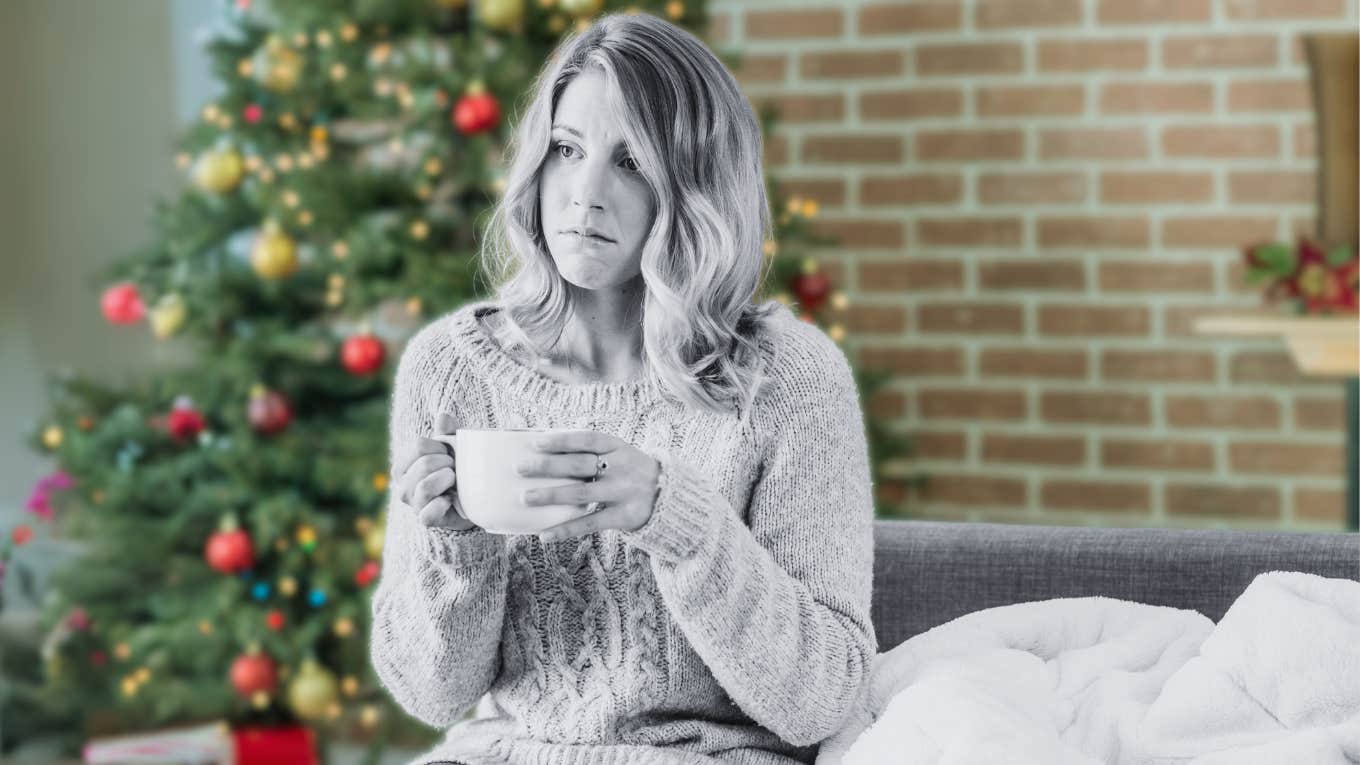8 Tips For Getting Through The Holidays After A Breakup
The worst timing, right?
 FatCamera from Getty Images Signature
FatCamera from Getty Images Signature Being dumped by a romantic partner is generally a very painful experience. In psychology, rejection is often defined as the perception of not being accepted, included, or wanted by others.
When we experience real or imagined rejection, exclusion, and even more extreme forms of ostracism (like bullying or teasing), it can affect us emotionally, behaviorally, and physically. For example, rejection from lovers can leave us feeling sad, ashamed, angry, anxious, or lonely.
It can also trigger unhelpful behaviors, such as aggression or withdrawal, and even cause physiological symptoms such as heightened pain sensitivity.
The negative effects of rejection can be even harder over the holidays because it’s a time associated with higher levels of stress.
The holiday season is often associated with worry about paying for holiday gifts, getting sick, work demands, and dealing with challenging social or familial realities.
If you’re going through a tough breakup, here are 8 tips to help you cope.
1. Remind yourself that you can’t control your ex.
Often, we think that being rejected means something is wrong with us — we’re “less than,” not good enough, or unlovable somehow. This often leads people who are dumped to feel hurt and lonely.
If you’re feeling rejected, remind yourself that you can’t control what other people want and think, or how they choose to act.
2. Fight social embarrassment.
Not everyone is going to like you, love you, or want to be around you. But being rejected by a lover, a friend, a potential employer, a college, or even a group of friends often leads people to feel embarrassed and socially uncomfortable.
So, remind yourself that being rejected doesn't affect your value as a person at all.
3. Focus your attention away from your ex.
When we feel rejected, it’s really easy to focus on the specific event that makes us feel unwanted and try to find out what that person is doing now. If you're feeling insecure and jealous, strive to shift your attention away from your ex and onto aspects of your life where you feel included, loved, valued, wanted, and supported.
4. Pause and try not to act impulsively.
If you’re trying to heal after a breakup and feel stuck on your ex — pinning over them, focused on what they’re doing, wishing you could talk or understand what happened — you’re probably feeling really bad emotionally.
This makes you more likely to want to contact your ex. In the long run, this is going to make it harder for you to move on. So, when you want to reach out, pause. Stop acting and notice your feelings without reaching out to your ex.
5. Find gratitude for the people actively in your life.
Although it may not seem like going through a breakup could have a positive outcome for you, it is actually the perfect time to understand yourself more deeply. Focus on the wonderful things that exist in your life or what you’d like to build back into your life now that you’re single.
6. Actively work on self-care.
It may seem simple, but focusing on getting enough sleep, eating healthy food, exercising, and taking care of your physical health is key to the healing process after a breakup.
7. Increase your social support.
This is a time when reaching out to trusted friends and family is key. It can also be very helpful to join a support group.
8. Plan for the triggering times.
As we approach the holidays, parties, social events with couples, and gift-giving with family may be particularly triggering because your ex won't be there.
So, plan for them. Practice coping skills like mindfulness, deep breathing, relaxation techniques, or changing your thinking when you anticipate that an event or day will be especially difficult.
The truth is this: Being dumped over the holidays can be especially difficult.
Finding ways to take care of yourself and to find gratitude for the wonderful people in your life, and remembering that this is just one breakup experience in a much longer life story, will help you cope with the pain.
Cortney Warren, Ph.D., ABPP, is a clinical psychologist and adjunct professor of psychiatry at the University of Nevada Las Vegas (UNLV). She is also the author of Letting Go of Your Ex and Lies We Tell Ourselves.

